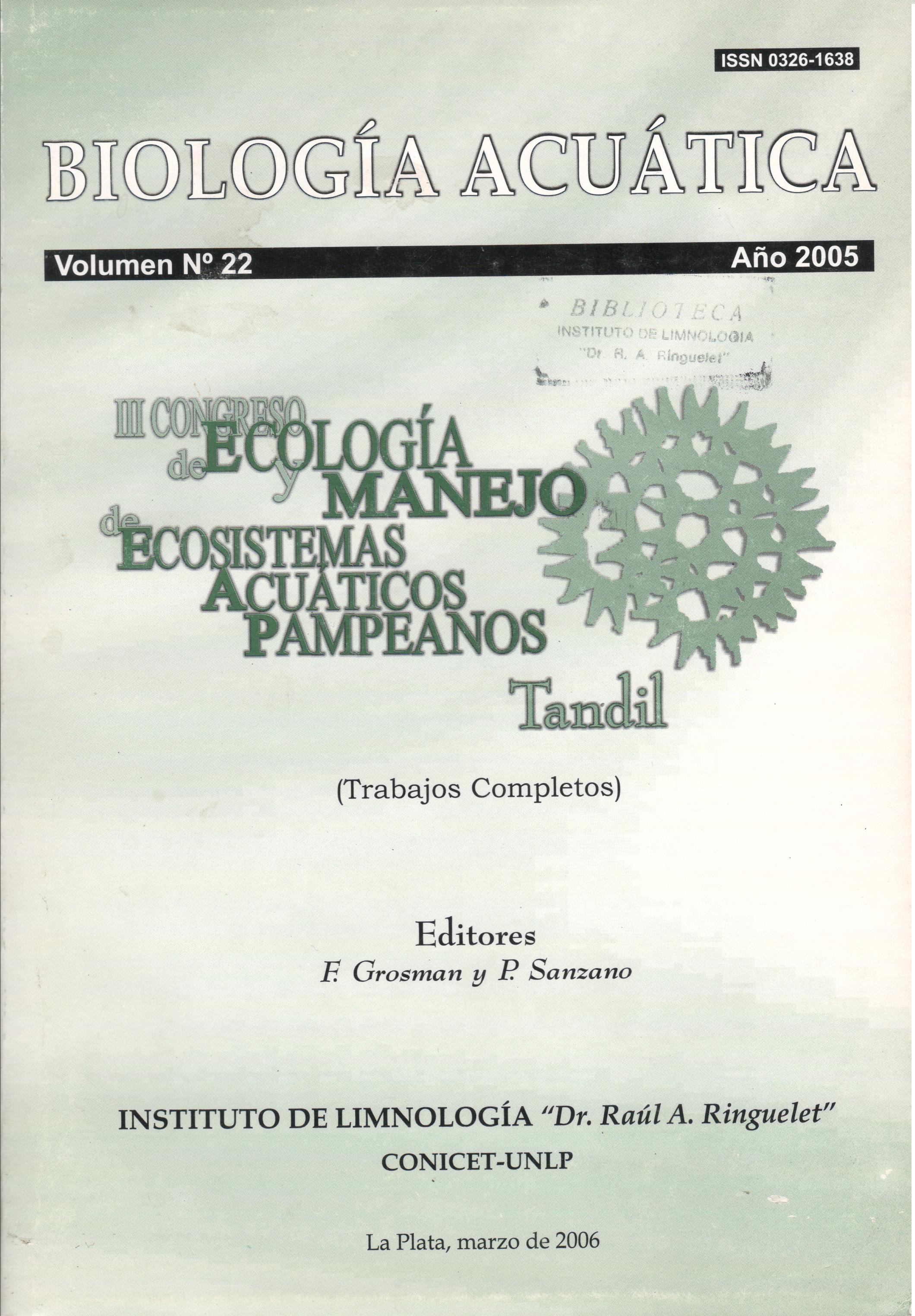Cambio ambiental y desplazamiento de la ictiofauna en el oeste de la Pampasia (Argentina central)
Palabras clave:
ictiofauna, poblaciones de peces, dispersión, cambio climático, Pampas, ArgentinaResumen
Within the Pampas ecoregion during the XX century, heavy climate changes resulting in fish fauna displacements westward of meridian 61. These movements implied three elements: climate change, topographic changes, and animal transport. From the northwest of this region, where fish were not present in the recent past, 10 species from the La Amarga swamps, 10 from the neighborhood of General Villegas and 4 from Trenque Lauquen are known at present. In the three cases, water is hard and alkaline. Their fish fauna have a similarity index (Jaccard) of 44 % with that from the Salado River basin, and of 57,9 % with that from the «lagunas» Encadenadas del Oeste. In the latter environment, the number of species increased from 7 to 18 in thirty years, having at present 75% similarity with that from the Salado River basin. In the western Pampasia, data from 6 meteorological stations in a polygonal area 16,500 km2 in extension, show a heavy climatic change, with a progressive significant increase of rainfall and the minimum mean annual temperature, which are limiting factors for fishes. Mean annual rainfall increased from 700 to 950 mm and the minimum mean temperature from 8,9 to 10,1º C in the last 40 years. New water bodies were formed and other increased their volume. At the same time, construction of discharge channels, embankments, and modification of slopes, connected western Pampasic areas with the Salado River basin, allowing them to be colonized by more eurytopic fishes. The Pampas ecoregión has his present western border about 64º W, including the La Amarga dells. We think that, as a result of environmental change and the above mentioned processes, new environments with Brazilian fishes will be formed in the western Pampasia in the near future.






















